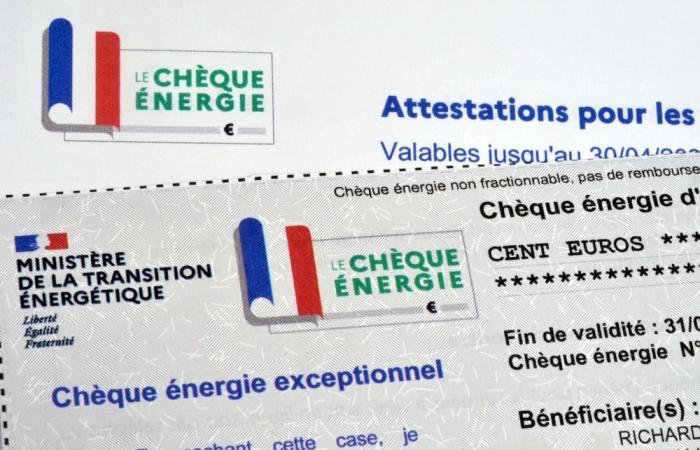As the year 2024 came to an end, more than 200,000 households requested an energy check in the last available hours. This rush reveals the importance of this aid for low-income households, but also the administrative limits of a system to be reformed. On December 30 and 31, 2024, the Ministry of Industry and Energy recorded an influx of more than 200,000 requests for energy checks via the official platform. These figures, revealing the growing dependence of low-income households on this support, question the effectiveness and accessibility of an essential program in a context of persistent energy crisis.
The energy check: essential help for low-income households
The energy check is a system introduced in 2018 to help households with the lowest incomes cover their energy expenses. This aid, comprised between 48 euros et 277 eurosis allocated each year to approximately 5.7 million households.
• Possible uses :
The check can be used to pay gas, electricity, firewood bills or to finance energy renovation work. These uses aim to reduce energy poverty in a country where, according to the National Observatory of Energy Poverty, 12 million people struggle to heat their homes adequately.
However, despite its crucial role, the system shows weaknesses: the abolition of the housing tax in 2023 has complicated the cross-checking of tax data, making it more difficult to identify eligible households.
Why such an influx at the end of December 2024?
In December 2024, the number of requests exploded, particularly on December 30 and 31, the last days to submit a request on the chequeenergie.gouv.fr platform. Several factors explain this phenomenon:
Households had until December 31 to submit their request. This constraint has prompted many households to act at the last minute.
- An incomplete initial distribution:
In April 2024, 5.5 million checks had been automatically distributed. However, approximately 125,000 homes forgotten during this first salvo had to go through the platform to claim their dues. This administrative delay contributed to the end-of-year overload.
- A tense socio-economic context:
The year 2024 saw a continued rise in energy costs, with electricity bills reaching historic highs. This situation has pushed households to look for financing solutions, making the energy check even more essential.
- A lack of communication:
According to associations like the CNAFAL (National Council of Secular Family Associations), better awareness would have made it possible to reduce the last minute influx. Next to 800,000 households risked being excluded due to lack of applications filed on time.
A device running out of steam?
If the energy check remains a key tool to fight energy poverty, its limits are obvious.
- Digital accessibility:
The online platform is considered not very intuitive. For households without access to the Internet or with poor digital skills, the process remains complicated, creating an administrative divide.
With a ceiling of 277 euros, the energy check rarely covers all annual expenses, particularly for households heated with oil or electricity, where bills can exceed 2 000 euros per year.
Several associations have requested an extension of the deadline to allow households in difficulty to submit their application. However, these calls went unheeded, due to a lack of budget to extend the system in 2025.
| Type d’aide | Amount | Authorized uses |
|---|---|---|
| Energy check | 48 to 277 euros | Invoices, insulation work |
| Renovation boost bonus | Up to 4,000 euros | Insulation, replacement of boilers |
| Help from local authorities | Variable | Energy bills |
A reaction? Leave a comment
Did you like this article? Subscribe to our free newsletter for engaging articles, exclusive content and the latest news.






